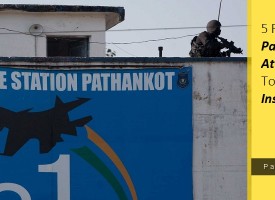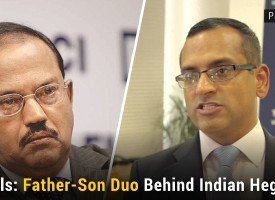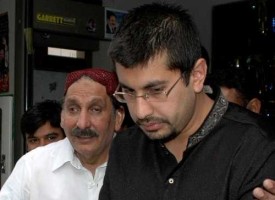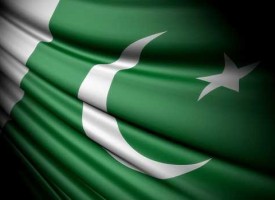There was chaos in the air. Shrill voices and displeasing exchange of words were tearing through my ear drum, before I could make my way to reach Masjid Al Haram’s women section after performing ablution in an underground washing area. I witnessed a roving herd of savages in the middle of the holy city of Makkah, I was almost in a state of unspeakable awe at the sight of my fellow compatriots among various nationalities. Pakistanis traveling abroad have not realized their national responsibility representing their national identity in a multi-national surrounding, which includes religious tourism/pilgrimage. It was nothing less than an horrific revelation to me while I witnessed innumerable Pakistanis, most of them coming from rural areas of Punjab, who were either completely clueless of the entire idea of pilgrimage or going almost neurotic behaving like animals triumphing their successful barn-escape at sudden exposure to a foreign land and culture.
“There is a difference between literacy and education” – and that explain why Pakistan is at 60% literacy rate. That one phrase I read somewhere, some time ago kept flashing through my brain, as if it was a lost piece to a jigsaw puzzle. Quite disappointing though, it was setting up a new space for an internal debate that was about to explode in my mind, leading me to writing this blog. Apparently, the government of Pakistan seems quite forward looking and “strategically” planning a system of infra structural development influenced from Turkey or China, flaunting some red-riding-hood inspired buses flying through newly-built routes crossing over the city. Interestingly, such a development comes way down the list of “good” governance in a country where education is still a scarcity!
People need basic education, which does sound cliched, yet that is exactly the need of the time. No we do not need Metro buses, Orange lines or Disneylands, we need an emergency announcement for free-of-cost compulsory public ethics crash course in order to become capable of operating in a system our dear government is hasting to deliver to the sheeple they have breeded over the period of time. To visitors, who are conscious enough of their responsibility as nationals of this country, it is an excessive dose of embarrassment, as it was for me to find myself stuck among Pakistanis from Uranus visiting planet earth for the first time in their lives.
It seems, the problem doesn’t only lie at the bottom, it is a vicious trickle-down-affect in process, in whole clock-wise circles, starting from the top. The government which is oblivious of its responsibility other than developing foreign relations with a country on the basis of some vague religion-inspired ideology is not on the right path of development goals, and this is where Pakistan is headed. It is noteworthy that most of other Muslim countries plan their pilgrimage tours to Makkah and Medina through group assistance, who are pre trained, pre planned and pre organized in order to avoid uncalled for happenings during their stay in Makkah & Madina. For instance , unavailability of proper meals/food, getting lost while on their way to the destination, incomplete or wrong performance of religious practices required to be performed during pilgrimage, language barrier problems. Unfortunately, Pakistanis who are noticeably the largest community from among average religious tourists to Makkah & Medina fall prey to such unfortunate happenings most commonly. Absence of pre guidance many old and under-educated Pakistani pilgrims are seen parting from their families losing directions on their way to destination or finding themselves stuck in many such events. Nevertheless, it is also noteworthy that Saudi assistance required for resolution of such issues is either delayed, absent or simply based on an attitude driven by racism and national-discrimination towards Pakistani pilgrims. Therefore, it magnifies the conspicuous lack of bilateral commitment between two “brotherly” countries when it comes to one of the most important part of the deal, religion. The government of Pakistan is apparently more concerned about keeping the “brotherly” part handy for more serious problems, like offshore political asylums e.g. and not public diplomacy, or public welfare.
Undoubtedly, Saudi-Pakistan relations are based upon deep-rooted religious/spiritual lines, however it shall be observed that whether these relations have translated into deep-rooted socio-economic relations or are equivalent to boastful speeches and empty promises made during election period in Pakistan?
Path dependency is an idea that tries to explain the continued use of a practice based on historical preference or use. This holds true even if newer, more efficient practices are available due to the previous ease of experience and practice. Path dependency occurs because it is often easier or more cost effective to simply continue along an already set path than to create an entirely new one. In this respect, Pakistan stands quite high at the pedestal of becoming a path-dependent country, where relations, policies and strategies are formulated on the basis of historically set paths based on religious ties, common beliefs or simply because of the lack of innovation.
Especially in the area of diplomacy, Pakistan needs innovation, a strategic road map based on pragmatism and real politick , not mere emotionalism and “brotherly” sweet-talk curtailing on the essence of diplomacy, the national interest of the state.
Pakistan’s relations with India are evidently rough and uncomfortable, having fought three wars and continuously trembling diplomatic ties, while on the other hand the current Indian government of BJP having strong ties with Hindu nationalism and a flaunting history of Muslim massacre and persecution has not barred Saudi Arabia from giving a warmest reception of the time to Narendre Modi while he toured Saudi Arabia. Henceforth, this is a reminder to Pakistan’s leaders that international relations are based on national interest & not on vague religion-based ideology. Moreover, during the visit, King Salman Bin Abdul Aziz conferred the kingdom’s highest civilian award, The king Abdul Aziz order, on Modi.
Similarly, Saudi Arabia maintains economic relations with all the great powers of west and others including Israel (behind the door diplomacy), which again reminds our leadership that foreign relations are a much greater game than ideological differences and countries can go to great length for national interest. The rise of al-Qaida; serious bribery and corruption scandals and diplomatic rifts; recurring oil crises; deepening concern over Saudi funding for extremist religious teaching and its links to terrorism; escalating rows about egregious human rights abuses and the repression of women, and most recently, the Syrian calamity and the ascendancy of the black-shirted head-cutters of Islamic State, Saudi Arabia survives it all with diplomatic relations, why not Pakistan?
Therefore, Pakistan-Saudi Arabia relations should move beyond the “sweet talk” to pragmatism resolving real problems faced by Pakistani diaspora there and those touring the kingdom for rendering religious obligations.
It is worth mentioning that Prophet Muhammad PBUH loved the cities of Medina & Makkah, which re instates the notion that one must not disregard their place of identity, Islam encourages positivity, and prohibits spread of fitnah/mischief. It is indeed our religious duty as much as it is a national duty to behave as literate, modern, and humble individuals, in order to make a place for ourselves as “good” Muslims representing our national identity as Pakistanis.
Jamal Al-Din Al-Afghani (Political activist of Islamic modernism from late 19th century) composed in rhymed prose an ironic commentary on the misunderstanding he evoked in Afghanistan (and would soon evoke in many other countries) in relation with intricate religious orientations that need to be removed by moving beyond them:
The English people believe me a Russian
The Muslim think me a Zoroastrian
The Sunnis think me a Shiite
And the Shiite think me an enemy of Ali
Some of the friends of the four companions have believed me a wahhabi
Some of the virtuous Imamites have imagined me a Babi
The theists have imagined me a materialist
And the pious a sinner bereft of piety
The learned have considered me an unbelieving sinner
Neither does the unbeliever call me to him
Nor the Muslim recognize me as his own
Banished from the mosque and rejected by the temple
I am perplexed as to whom I should depend on and whom I should fight
The rejection of one makes the friends firm against its opposite
There is no way of escape for me to flee the grasp of one group
There is no fixed abode for me to fight the other party
Seated in Bala Hisar in Kabul, my hands tied and my legs
Broken, I want to see what the curtain of the unknown will
Deign to reveal to me and what fate the turning of this malevolent
Firmament has in store for me.








No comments!
There are no comments yet, but you can be first to comment this article.